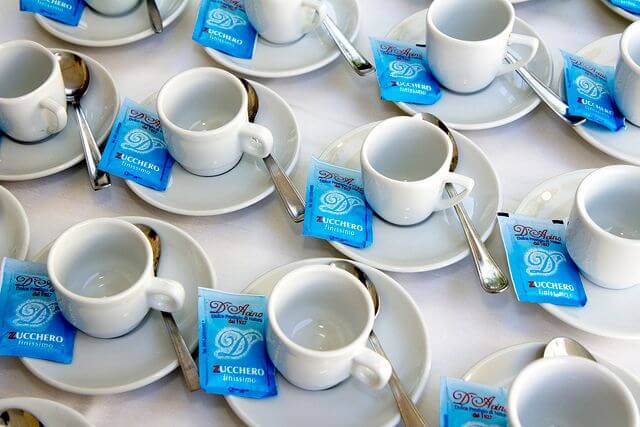Illinois: Tax Soda, Save Lives
- Feb 24, 2014 | Gail Cole

It’s time for Illinois to tax on sugar-sweetened beverages, according to the head the Illinois Public Health Institute. Illinois Senator Mattie Hunter (D-Chicago) and Representative Robyn Gabel (D-Evanston) think so, too. That’s why they’ve introduced the Healthy Eating and Active Living Act, legislation that seeks to impose a 1-cent-per-ounce excise tax on numerous sugary drinks.
The state needs to "do a better job of educating the public about the link between consuming sugary soft drinks and obesity,” says Sen. Hunter. “The only way to save lives is to fight this issue from both ends: through preventive measures and programs to help those who are overweight or have diabetes.”
Chicago already imposes the Chicago Home Rule Municipal Soft Drink Occupation Tax, a tax rate of 3% of gross receipts from soft drinks sold at retail. Soft drinks include but are not limited to: soda, sport and energy drinks, sweetened tea, sweetened water, and beverages that contain 50% or less of fruit or vegetable juice.
The proposed SB 3524 and HB 5690 seek to impose tax on:
- Regular and diet sodas;
- Beverages that are less than 50% juice;
- Sports drinks; and
- Ready to drink coffees and teas.
Back in 2011, the Cook County Department of Health published a study predicting a penny-per-ounce tax on sugary drinks could “generate more than $600 million and cut statewide consumption of those beverages by almost 150 million gallons.” Different studies link such a tax to reduced rates of diabetes and obesity, which could save the state between $20 million and $150 million in diabetes and obesity health care costs.
The tax currently being proposed would fund a variety of education and health-related programs, including Medicaid. An advisory board with representatives from the State Board of Education, the Illinois Department of Public Health, and other health organizations would be tasked with divvying up revenue generated by the tax.
Aggressive opposition
The Illinois Beverage Association is “not just going to sit back” and watch this legislation become law. Said executive director Timothy Bramlet, “[W]e’re going to be aggressively opposing the bill.” The creation of the Illinois Coalition Against Beverage Taxes is just the first step.
Protecting already thin margins is a top priority, as is protecting the wallets of consumers, who will most certainly their favorite sugary drinks jump in price. And as the Illinois Coalition Against Beverage Taxes notes, fighting the tax will also save jobs:
“Who wants to kill jobs that our state desperately needs?… The truth is that a soda tax will help no one and hurt everyone.”
Teamsters spokesman Brian Rainville agrees. “These taxes are about reducing consumption, and reducing consumption means reducing production” (The State Journal-Register).
A different view
A recently published study funded by the Robert Wood Johnson Foundation suggests that jobs could actually grow if sugary beverages are subjected to higher tax rates. The study created a comprehensive model on such taxes in Illinois and California, and found jobs to increase by 0.06% and 0.03% respectively. The study concludes that sugar-sweetened beverage taxes “do not have a negative impact on state-level employment, and industry claims of regional job losses are overstated and may mislead lawmakers and constituents.”
A long and difficult fight
The lawmakers are pushing for an excise tax rather than a sales tax because excise taxes are usually reflected in the purchase price. According to Dr. Frank Caloupka, professor of economics at the University of Illinois and an author of the Cook County study, sales tax is less apparent to consumers because it’s added at the register. Excise taxes tend to be noticed by shoppers in the aisle.
No matter the type of tax, Sen. Hunter and Rep. Gabel don’t expect this to be easy. “My experience with bills that have a lot of opposition is that in the first year, it’s hard to get them out of committee,” said Gabel. Nonetheless, the legislation should get people talking. And the more people understand the impact of sugary beverages on calories, diet and health, the more likely they are to make different choices.
Get Free Tax Rate Tables
photo credit: Tom Wachtel via photopin cc

